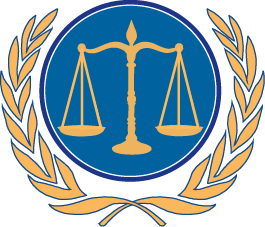Practice Areas
Individual Chapters 7 & 13
Chapter 7
When a person experiences a serious debt problem, it can create a anxiety and stress. The United States Bankruptcy Code allows individuals to file for bankruptcy relief in order to stop creditor harassment, lawsuits, and garnishments, as well as provide a long-term solutions to overwhelming debt problems.
An individual, partnership, corporation, or other business entity that is unable to pay debts may qualify for a Chapter 7 bankruptcy.
One of the primary advantages of a Chapter 7 bankruptcy is that it provides a “fresh start.” The Chapter 7 discharge also prevents creditors from taking any further collections actions or filing any lawsuits to collect on the discharged debts. Most people who file a Chapter 7 keep all of their assets.
A Chapter 7 bankruptcy discharge could even extinguish some secondary valid liens on property and can eliminate Judgment Liens filed by a creditor who has sued you. There is no repayment requirement in a Chapter 7 bankruptcy. Instead, the debtor is allowed to keep certain property called “exempt” property. Most people that file for chapter 7 are able to keep all of their assets including their home and cars.
In order to determine whether an individual qualifies to file for bankruptcy relief under Chapter 7, We consider: monthly income, expenses, and debts. Most individuals or married couples with primarily consumer debts will qualify under Chapter 7. However, if your income exceeds certain limits you may be required to file a Chapter 13.
The easiest way to move forward is for us to discuss your individual situation. There is no fee for the initial consultation; all it takes is a simple phone call. While the Internet is full of helpful, and sometimes even accurate, information on bankruptcy, it is no substitute for a consultation with a real attorney. We also look at any student loans that the client may have that may qualify for forgiveness or discharge ability.
Chapter 13
When an individual or married couple face serious financial difficulties, sometimes the option of filing for bankruptcy comes up as a possible solution. Bankruptcy can be a very helpful option for those who have serious debt problems because it has the ability to stop creditor collection actions, as well as permanently wipe out most types of debt. This gives a “fresh start” financially.
In a Chapter 13 bankruptcy the debtor who has regular income is allowed to develop a plan to repay some or all of his or her debts and keep your home by allowing the homeowner to catch up on payments they are behind on the mortgage. Any scheduled foreclosure is automatically discontinued and canceled. At the conclusion of the repayment plan, the court orders that any remaining balance on the plan debts is discharged, which means that the debtor is released from liability for any balance on the debts contained in the Chapter 13 plan.
Chapter 13 bankruptcy is available to an individual, sole proprietorship, or an unincorporated business entity as long as the debtor’s debts are below the limits set by the United States Bankruptcy Code. If your debts exceed the Chapter 13 debt limits (currently $ 2,750,000 in total debts), your only option is the file an individual Chapter 11.
There are many benefits of filing a Chapter 13, including:
- The Automatic Stay – When an individual files for bankruptcy relief under Chapter 13, the bankruptcy court gives notice of the bankruptcy case to all creditors. The notice informs creditors that the debtor’s bankruptcy filing prohibits any further collection actions against the debtor and his or her property, including any lawsuits, wage garnishments, or other debt collection efforts, such as making phone calls, sending letters, or contacting the debtor in any way.
- Ability To Save Home From Foreclosure – An individual can use a Chapter 13 bankruptcy to save a home from foreclosure. When a Chapter 13 petition is filed, the automatic stay has the effect of immediately stopping a foreclosure proceeding or action as long as the foreclosure sale has not been completed. The debtor can then set forth a repayment schedule in the Chapter 13 plan outlining how past-due payments will be brought current over a reasonable period of time. If payments are made as called for, the foreclosure action cannot be continued.
- Ability To Modify Terms Of Some Existing Agreements – Filing for Chapter 13 relief also can give a debtor the ability to modify the terms of some outstanding agreements, such as by stripping off an underwater second or third mortgage or line of credit, cramming down an auto loan or mortgage by reducing the total amount owed to the current value of the property, or by obtaining a lowered interest rate.
Chapter 13 bankruptcy can be a helpful answer for individuals who have regular wages but who also are experiencing serious financial difficulties. The easiest way to move forward is for us to discuss your individual situation. There is no fee for the initial consultation, all it takes is a simple phone call.


